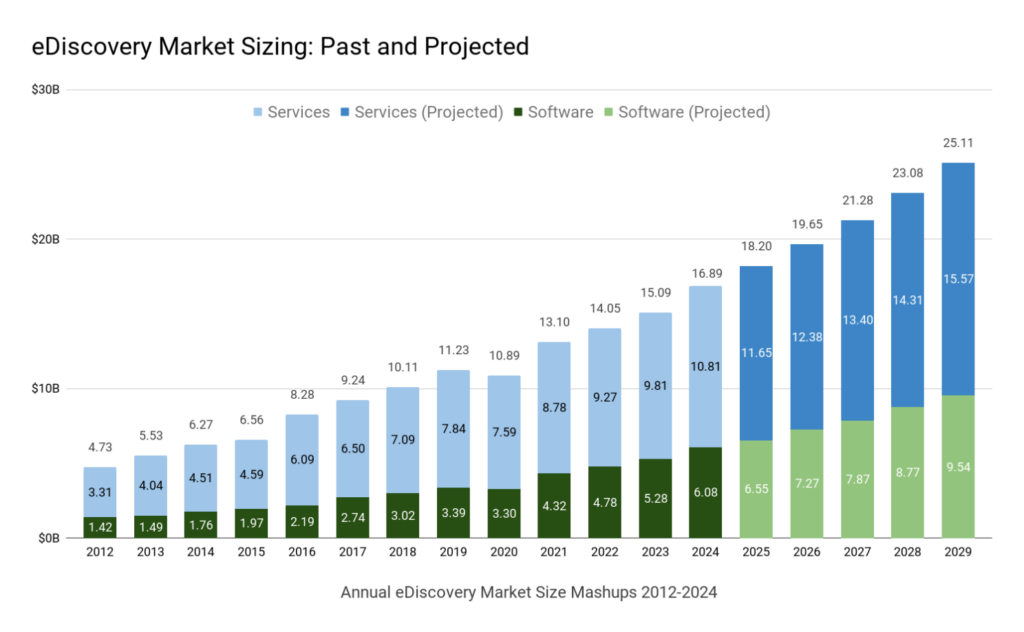Email remains a cornerstone of business communication in different industries. However, as organizations generate and exchange ever-increasing volumes of electronic information, they face growing legal and regulatory scrutiny. This is where eDiscovery, or electronic discovery, becomes critical, especially in industries governed by strict compliance requirements such as finance, healthcare, law, and government.
Understanding the definition of eDiscovery is the first step: it refers to the process of identifying, collecting, and producing electronically stored information (ESI) as part of legal proceedings. This includes email content, attachments, metadata, and any digital communications relevant to a case. In regulated industries, the stakes are high—failure to preserve or produce the right data can result in heavy fines, sanctions, or legal liability.
What Is eDiscovery and Why Does It Matter?
What is eDiscovery? In simplest terms, it’s the digital version of the traditional discovery process in legal proceedings. But instead of filing cabinets and paper trails, today’s legal teams must comb through terabytes of data across email systems, file storage, and collaboration platforms. The need for fast, reliable, and compliant access to this information has driven the development of specialized eDiscovery software and eDiscovery tools.
Organizations use eDiscovery solutions to:
- Respond to legal investigations and audits.
- Fulfill compliance and record-keeping regulations.
- Implement legal holds on communications to prevent the deletion of critical evidence.
- Protect sensitive information through proper access controls.
The importance and growth of eDiscovery solutions and electronic discovery services aren’t just anecdotal—they’re backed by significant market data. For perspective, there is this graph showing annual mashup activity from 2012 through 2024, highlighting just how much the market has matured. In 2012, the eDiscovery market stood at $4.73 billion. Fast forward to projections for 2029, and it’s expected to reach a staggering $25.11 billion.

This dramatic rise reflects not only increased regulatory demands but also the rapid digitization of business operations, making robust e-discovery software and compliance-ready email systems essential for long-term risk management and operational transparency.
The Legal Hold: A Cornerstone of Compliance
One of the most important features in e-discovery software is the ability to place a legal hold on certain user accounts or content. This ensures that no matter what happens—whether users delete emails or try to alter content—those communications are preserved exactly as they were at the time of the hold.
For companies in regulated sectors, this is not just a convenience—it’s a legal obligation. Regulatory bodies like the SEC, HIPAA, and GDPR have specific requirements around data retention and the ability to provide proof of compliance.
How eDiscovery Software Supports Legal Teams
What is eDiscovery software really capable of? The best e-discovery solutions go beyond simple archiving. They provide advanced filtering, keyword search, timeline reconstruction, and audit trails—all of which help legal and compliance teams build defensible, transparent cases quickly and efficiently.
Some of the most effective eDiscovery services also offer automation, tagging, and AI-powered search features that reduce manual effort and human error. Whether you’re responding to a data subject access request (DSAR) or a full-blown litigation case, robust electronic discovery services can drastically reduce risk and cost.
Why Email Systems Must Be eDiscovery-Ready
Email systems are among the most common sources of electronic evidence—and the most frequently targeted in legal discovery. That’s why modern organizations need email platforms that include built-in support for e-discovery tools, legal hold mechanisms, and electronic discovery law requirements.
Failing to integrate eDiscovery into your email infrastructure can leave you vulnerable to:
- Non-compliance penalties
- Lost or inaccessible data
- Prolonged and costly litigation processes
- Damaged reputation and customer trust
Whether you’re choosing a new platform or auditing your current setup, it’s essential to prioritize eDiscovery software features and legal compliance tools as part of your decision-making process.
Coclusion
Not all e-discovery software is created equal. Organizations need scalable, secure, and user-friendly ediscovery solutions that align with both legal needs and IT capabilities. Look for platforms that allow granular control over who can access what, provide end-to-end encryption, and offer seamless integration with your broader compliance strategy.
To explore how email and collaboration platforms can streamline electronic discovery, strengthen compliance, and simplify IT management, continue reading Simplifying IT Management: How Zextras Carbonio Enhances Administrative Control and Compliance.
